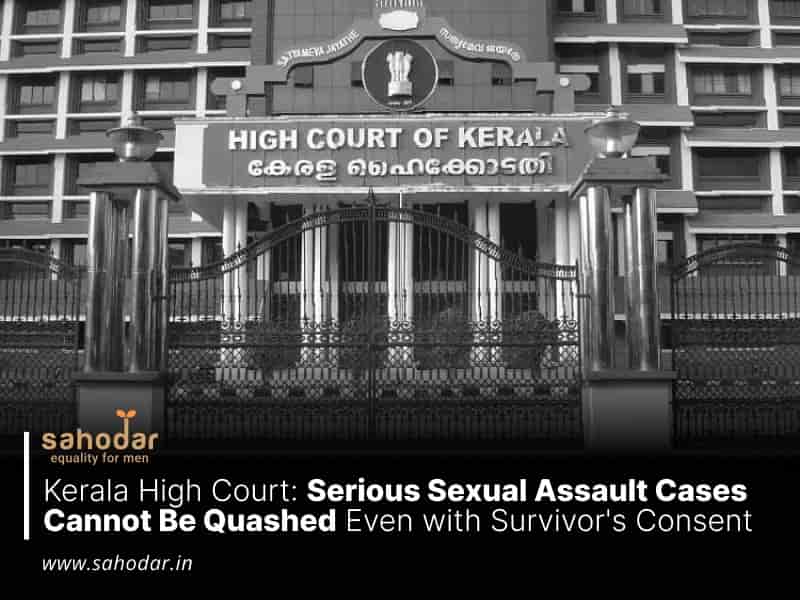The order was passed in a case where a man was accused of sexually assaulting his minor daughter several times over the course of three years.
The Kerala High Court has ruled that cases of sexual assault involving serious allegations cannot be dismissed, even with the survivor’s consent.
Justice A. Badharudeen cited the Supreme Court’s recent judgment in Ramji Lal Bairwa & Anr. v. State of Rajasthan & Ors., which overturned a Rajasthan High Court decision that had dismissed proceedings against a teacher accused of sexually harassing a 15-year-old student.
“Applying the same ratio in the present case, where very serious allegations of aggravated penetrative sexual assault and many other offences are alleged, quashment of the proceedings at the instance of the defacto complainant, that too, with a view to efface the evidence already recorded, could not be allowed“, the Kerala High Court stated in its order.
The order was passed in a case where a man was accused of sexually assaulting his minor daughter several times over the course of three years.
The case was registered against the man after his daughter, then in the sixth grade, disclosed his actions to her school counselor following a lesson on the concept of ‘good touch’ and ‘bad touch.’
He was charged under several provisions of the Protection of Children from Sexual Offences Act (POCSO Act).
During the trial, both the survivor and her mother testified against him. However, the survivor later approached the High Court with a plea to dismiss the proceedings, asserting that her statements to the police and the trial court were untrue.
The petition faced strong opposition from the public prosecutor, who emphasized that the trial was nearing its conclusion, with only the verdict remaining to be pronounced.
The High Court noted that a key factor in the case was that the accused was the survivor’s father. Additionally, the alleged offences involved penetrative sexual assault, and the survivor had already testified before the trial court, supporting the allegations.
Taking these factors into account, along with the Supreme Court’s position on similar cases, the Court decided to reject the petition.
“Having considered the factual matrix of the case, where evidence was already completed, quashment of the proceedings, involving very serious offences under the POCSO Act, sought for by the victim before pronouncement of judgment, could not be allowed and hence this petition must fail and is accordingly dismissed,” the order stated.

